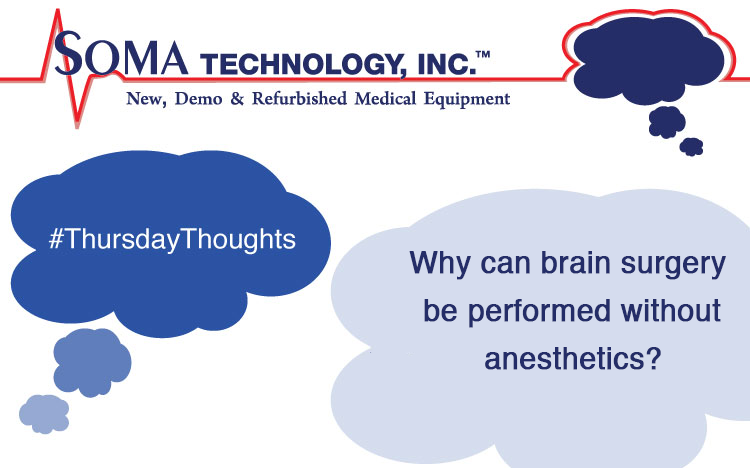Why Does Brain Surgery Sometimes Not Require Anesthesia?
April 5, 2018
Why Does Brain Surgery Sometimes Not Require Anesthesia?
This is a great question. We have heard that some brain procedures are done while the patient is awake. This can include brain tumor excision. But for the most delicate organ in our body; how can this be true?
The Answer
The brain is responsible for the neurons in our brain telling us when we feel pain. However, there are no pain receptors in the brain. This makes it easier for neurosurgeons to perform brain surgery due to a lessened need for anesthesia. Local anesthesia may be used. However, in some cases of surgery, the patient is awake. When a patient is awake it lessens the risks usually involved in surgery. These include there being no adverse reactions, allergies, overdoses, under-doses, or trouble with the patient waking up.
Why is Brain Surgery Usually Performed Without Anesthesia
Some brain surgeries are performed while the patient is awake. If it is not an awake surgery it is due to a wide variety of factors. Sometimes, a brain tumor can be located in an area that is tough to get to. Patients will be put to sleep when the tumor is too risky. This can mean that the tumor is in an area that can easily be damaged.
Brain damage is usually irreversible. Because the brain is the control panel for our bodies, it is imperative that it does not get damaged. Brain surgery is usually regarded as one of the most difficult surgical disciplines. Possible risks include coma, stroke, blood clots, seizures, problems with movements such as vision, forgetfulness, and mobile coordination.
Final Thoughts
Did you know that the brain lacks pain receptors? Did you know that sometimes brain surgery only requires local anesthesia or numbness to start the procedure? Did you know the risks associated with brain surgery? Comment below!
Explore Other Blog Items By Category
Recent Posts


Surgical Microscope Rentals


